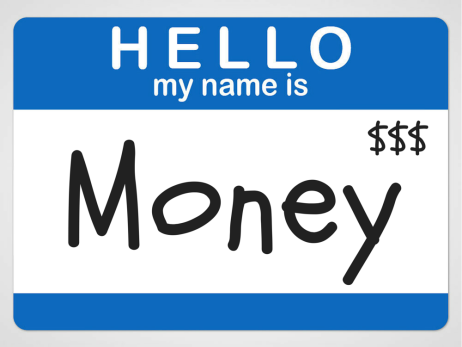How I Stopped Going Broke (Once and for All)
 I used to go broke every year. To stay out of the red, I had to stop ignoring money.
I used to go broke every year. To stay out of the red, I had to stop ignoring money.
Being a sound engineer or a freelancer of any kind can make budgeting difficult. Fortunately, difficult does not mean impossible! I’ve learned several powerful strategies in the last year that have completely changed my game.
The Big Shift
In March of last year I attended the Big Shift Experience seminar. It was my first real business seminar and I was struggling to keep up with all of the new ideas. They had us perform some great exercises, and one of my favorites targeted our relationships with money. I’ll describe it for you so that you can try it with a friend:
 Pretend that your friend is money, in the flesh. Talk to them! What do you appreciate about Money? What has been been challenging for you? What do you want for the future? Take five minutes to get everything off of your chest.
Pretend that your friend is money, in the flesh. Talk to them! What do you appreciate about Money? What has been been challenging for you? What do you want for the future? Take five minutes to get everything off of your chest.Next, let Money take five minutes to respond (using their imagination) about how they feel about you and the things you just said. They might explain the status quo and make some suggestions for the future, or they might try to help clarify the things you said to them. They don’t need to give you the secrets to success; the power is in hearing your words and intentions reflected back to you.
This may sound a little woo, but here’s what I discovered:
I had been mostly ignoring money my entire life. I only gave it attention when I was upset about my finances and forced to confront the situation.
To build a strong relationship, Money and I needed to hang out more regularly.
Action
So, what was the best way to integrate Money into my life? Slowly and steadily. I started simply, by taking ten minutes every day to review my finances.
Check all accounts to record/confirm new income and expenses.
Make budget adjustments as necessary. (The nice thing about checking in every day is that you see the small transactions and habits that can lead to bigger problems and catch them before they grow.)
Results
Super simple, but just that little action can make a big change in your finances. What you give attention to grows.
I was ignoring money because I didn’t want it to run my life. The result was that it ran my life. I’m not a millionaire (yet) but I know where my money is going and I no longer budget on faith, because I know:
How much my lifestyle costs.
How much money I need to make to maintain my lifestyle.
How much I need to charge for my services.
How much I can save for my future.
When I will be able to stop working for money (more on this in a future post!).
How much I can spend on food, travel, and lap dances.
Why You Need a Budget
Here are some common excuses people use to avoid writing a budget:
I don’t make enough money to use a budget.
Budgets don’t work.
I check my account balance before every purchase.
 How well have those worked for you? Have you gone broke?
How well have those worked for you? Have you gone broke?
I have. Many times.
If you are going to participate in modern society, you are going to spend money (or Bitcoin). Stop pretending like you can run it all from your head and write those numbers down.
NOTE: It’s not all about limiting spending. It’s about exercising control, and creating goals and a strategy for success.
The Solution
Create a budget. Update it daily with current information.
Tomorrow I will start a giveaway for a free copy of You Need A Budget (YNAB) software, but before then you can read their four-step method. Here’s a quick overview:
Give every dollar a job: This is similar to the envelope technique, if you’ve ever tried that. One big mistake that I made over and over while trying to make a budget is that I would use “Monopoly money” (that is, fake money that I didn’t have yet). I would project into the future and try to guess the entire month, then be surprised when I came up short. A more realistic approach is to only budget money when you have it, and then use that real money only for the next most urgent items in your budget.
Save for a rainy day: Last month I had to spend $500 to repair my car. Surprise! It sucked, but honestly, I can expect that happen at least once a year. As soon as I realized that, I created a Car Maintenance budget category where I save $42/month ($500/12months). Next time my car breaks down, I’ll be ready.
Roll with the punches: Surprise expenses are a big problem that I struggle with when I’m budgeting. There are a few ways you can make them easier on yourself. Last month I needed a piece of software I had not budgeted for. It was fairly simple to move some money out of my Buffer and Marketing category and into the Software category. What’s a buffer?
Live on last month’s income: A buffer is a safety net equal to at least one month’s income. Once you have a buffer saved, you can budget out an entire month in advance and be more flexible with surprise expenses.
If you don’t want to buy YNAB ($54, normally $60), you can still get started today with a simple spreadsheet.
This article How I Stopped Going Broke (Once and for All) appeared first on Sound Design Live. Sign up for free updates here.
P.S.
The Sound Engineer’s Pain-Free Guide To TurboTax
10 Critical Tax Questions Answered For Sound Engineers
How Much Do Live Sound Engineers Make?




